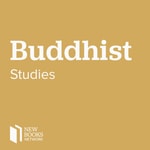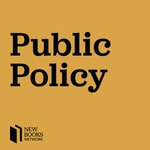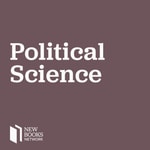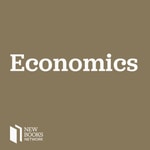New Books in Critical Theory – Détails, épisodes et analyse
Détails du podcast
Informations techniques et générales issues du flux RSS du podcast.
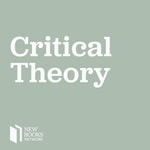
New Books in Critical Theory
Marshall Poe
Fréquence : 1 épisode/3j. Total Éps: 2010

Classements récents
Dernières positions dans les classements Apple Podcasts et Spotify.
Apple Podcasts
🇨🇦 Canada - socialSciences
29/07/2025#14🇬🇧 Grande Bretagne - socialSciences
29/07/2025#7🇬🇧 Grande Bretagne - science
29/07/2025#51🇩🇪 Allemagne - socialSciences
29/07/2025#22🇺🇸 États-Unis - socialSciences
29/07/2025#24🇨🇦 Canada - socialSciences
28/07/2025#13🇨🇦 Canada - science
28/07/2025#85🇬🇧 Grande Bretagne - socialSciences
28/07/2025#7🇬🇧 Grande Bretagne - science
28/07/2025#46🇩🇪 Allemagne - socialSciences
28/07/2025#23
Spotify
Aucun classement récent disponible
Liens partagés entre épisodes et podcasts
Liens présents dans les descriptions d'épisodes et autres podcasts les utilisant également.
See all- https://www.sensorylogic.com
245 partages
- https://emotionswizard.com.
244 partages
- https://twitter.com/bucephalus424
16 partages
- https://twitter.com/AJuseyo.
10 partages
- https://www.youtube.com/user/a48266/videos
10 partages
Qualité et score du flux RSS
Évaluation technique de la qualité et de la structure du flux RSS.
See allScore global : 53%
Historique des publications
Répartition mensuelle des publications d'épisodes au fil des années.
Karyne E. Messina, "The Power of Community: A 45 Day Action Plan to Stop Trump from Turning Our Democracy into His Autocracy" (PI Press, 2024)
Épisode 191
dimanche 1 septembre 2024 • Durée 54:56
Susan Greenhalgh, "Soda Science: Making the World Safe for Coca-Cola" (U Chicago Press, 2024)
Épisode 370
samedi 31 août 2024 • Durée 20:11
Jennifer Ponce de León, "Another Aesthetics Is Possible: Arts of Rebellion in the Fourth World War" (Duke UP, 2021)
Épisode 60
vendredi 23 août 2024 • Durée 01:05:52
Jason Read, "The Double Shift: Spinoza and Marx on the Politics of Work" (Verso, 2024)
Épisode 461
samedi 8 juin 2024 • Durée 01:12:09
Graham Harman, "Skirmishes: With Friends, Enemies, and Neutrals" (Punctum Books, 2020)
Épisode 129
lundi 18 octobre 2021 • Durée 01:07:33
Peter Mitchell, "Imperial Nostalgia: How the British Conquered Themselves" (Manchester UP, 2020)
Épisode 1085
jeudi 14 octobre 2021 • Durée 01:24:26
Erica R. Edwards, "The Other Side of Terror: Black Women and the Culture of US Empire" (NYU Press, 2021)
Épisode 256
jeudi 14 octobre 2021 • Durée 01:02:37
Michelle Caswell, "Urgent Archives: Enacting Liberatory Memory Work" (Routledge, 2021)
Épisode 1087
mercredi 13 octobre 2021 • Durée 57:47
Alana Jelinek, "Between Discipline and a Hard Place: The Value of Contemporary Art" (Bloomsbury, 2020)
Épisode 72
mercredi 13 octobre 2021 • Durée 59:14
Terence Renaud, "New Lefts: The Making of a Radical Tradition" (Princeton UP, 2021)
Épisode 55
mercredi 13 octobre 2021 • Durée 01:13:32
